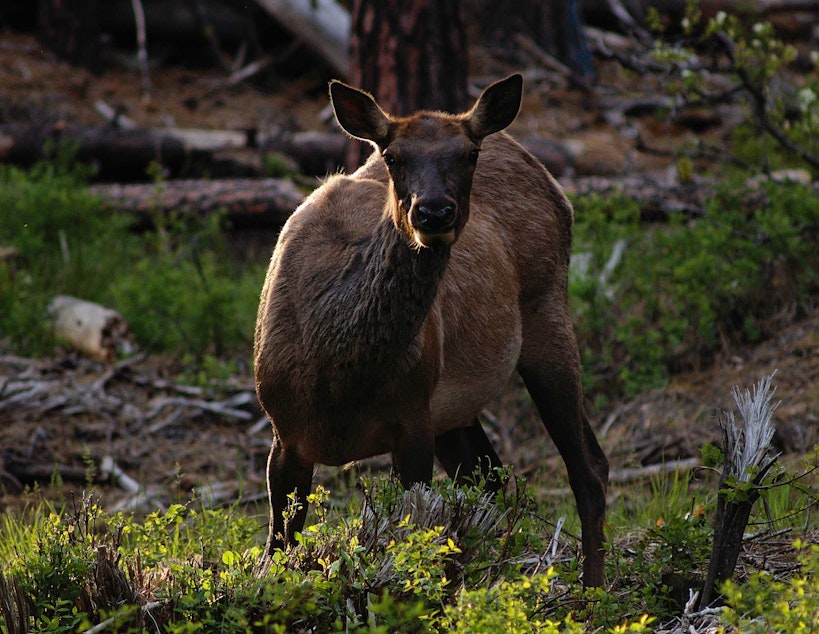Elk rebound in western Washington. Wolves may soon follow

Elk are making a comeback west of the Cascades. That’s exactly what wildlife officials were hoping for.
But it’s also causing problems in some suburban areas. And that’s why state wildlife officials are working on a new management plan.
One aspect of that plan: wolves. They’re expected to follow the elk in the not-too-distant future.
It’s all a result of critical steps taken in the past two decades.
Western Washington’s elk were in trouble in the late 1990s, suffering from habitat loss and overhunting.
So wildlife managers reduced illegal hunting, opened up some timber lands to elk, closed roads and cut the legal hunting allowance.
Sponsored
Those measures worked, and over the past 15 years, the elk herd that stretches from Mount Rainier to Highway 2 – called the North Rainier herd -- has more than doubled. There are now about 4,500 elk, up from fewer than 2,000 in the late 1990s.
Most are in remote areas, but in places like Enumclaw, North Bend and Buckley, elk are causing problems. They knock down fences and eat forage meant for livestock.
Michelle Tirhi is a wildlife biologist with the Washington Department of Fish and Wildlife. She helps manage the North Rainier elk herd.
“Someone who has thousands of dollars of livestock forage out on their field and you have, you know, 20 elk out there every day eating up all that forage--it interrupts their ability to make a living,” Tirhi said.
Tirhi stressed that elk have always lived in Western Washington, and many people like to hunt, photograph and observe them.
Sponsored
The key is limiting conflict. The state plans to do that by installing better fencing in some areas, taking out unneeded fencing and increasing hunting in places where elk are causing problems.
Tirhi said she expects all those elk to attract another species back to its native range.
“Wolves are going to control the elk numbers to some extent,” she added. “How much they’re going to control, how they’re going to control, where they’re going to control -- I think that’s all speculative.”
But she said suburban areas shouldn’t expect much help from wolves. Tirhi said she expects they will inhabit the most remote and least populated parts of the elk’s range, such as Mount Rainier National Park.




